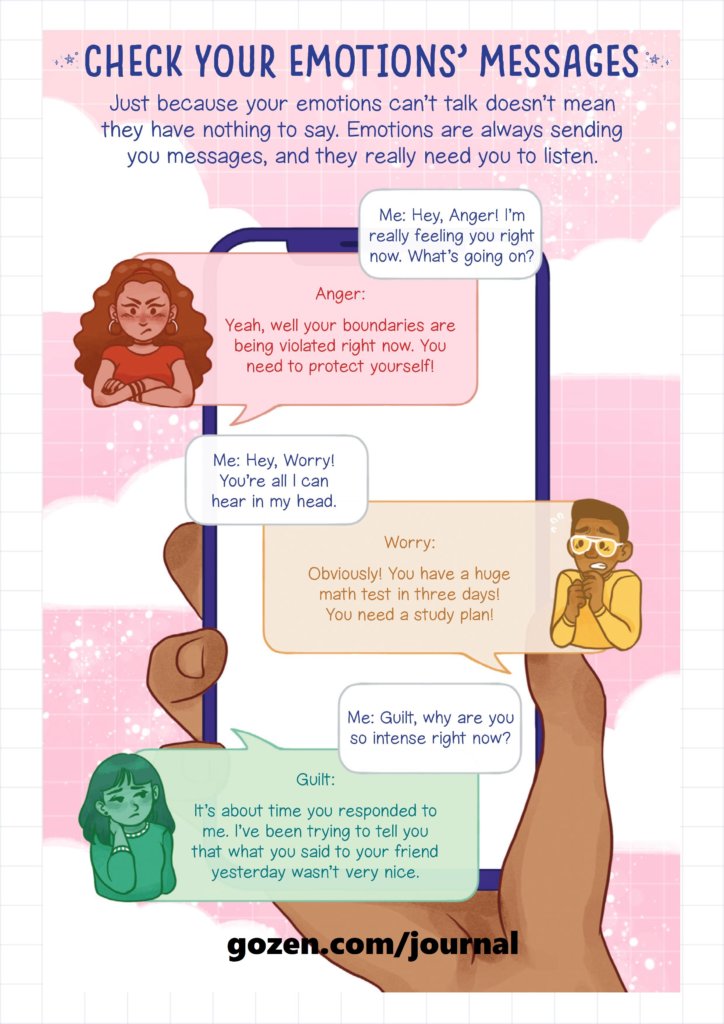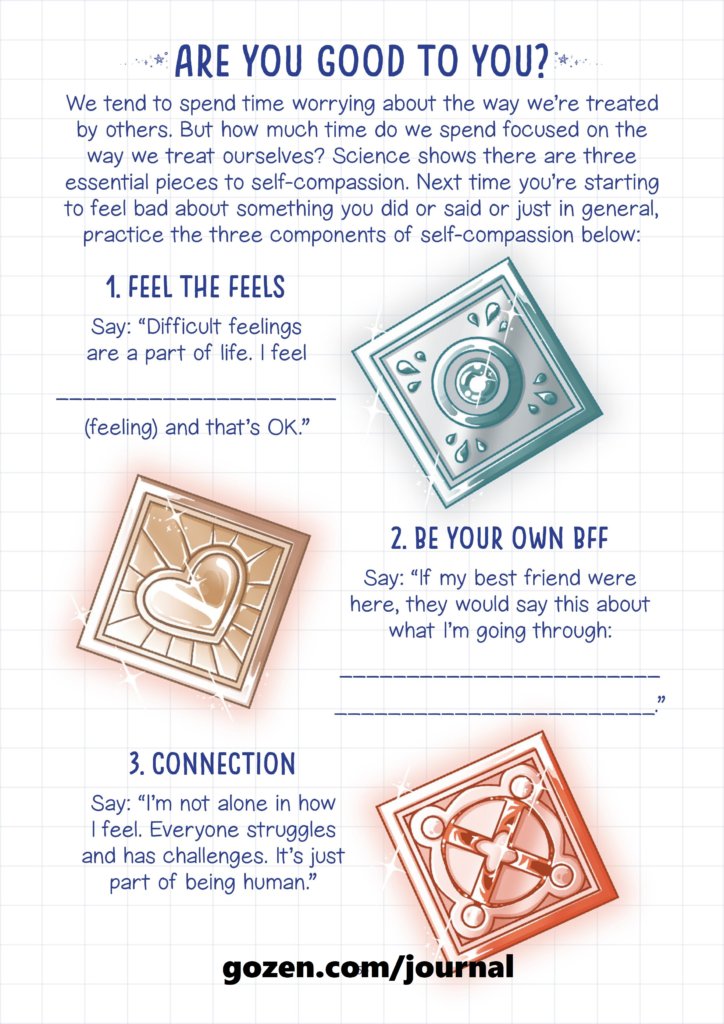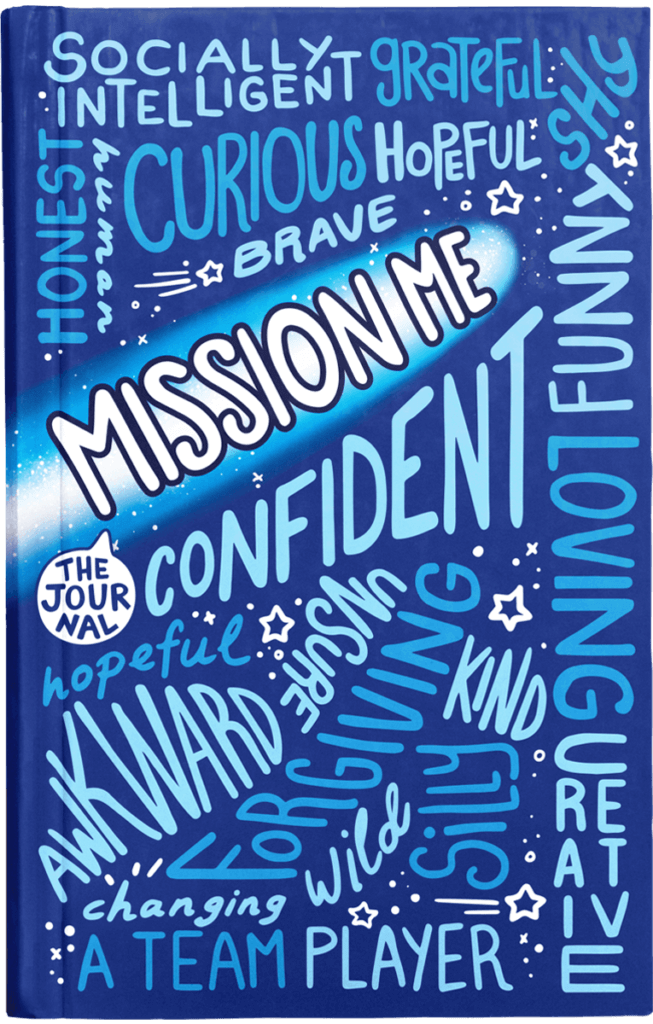When you think back on middle school and high school, one of the first things to come to mind, if not the only thing, is your social experience. For some it was positive. Negative for others. For everyone it was a challenge.
Our children have it harder today than we did when we were young. Increased social and academic pressures. Increased scrutiny from social media. Increased demands to always be available, always be “on,” always be perfect. Watching our babies (yes, they’re still our babies) struggle with friends, with their self confidence, and with their own worth, is harder than anything we ever experienced ourselves as tweens or teens.
We know you love your children, and we know you want as much information and as many resources as possible to help them through the best, and the most challenging years of their lives. From making friends, to public speaking, to fear of failing, we’ve got it covered. Here are five pieces of science that can give your kids a huge boost of confidence.
ONE: Research shows that every human has 24 key strengths inside of them. Every. Human. Strengths like Leadership, and Humility, and Perseverance. The 24 strengths show up in different amounts for each of us, but they’re all in there. Determining your greatest strengths and learning how to lean into them can go a long way in boosting one’s self-worth. Not only that, but understanding their strengths can help kids choose life paths with greater confidence. Learning ways that strengths intersect with things that the world needs is huge when it comes to understanding one’s greater purpose in life. Whoa! That’s deep!
TWO: Big feelings like worry, anger, sadness, or negativity (to name only a few) aren’t there to make you miserable. They’re trying to deliver important messages to you. For example, anger might be telling you that your boundaries are being violated. Worry might be telling you that something big is about to happen and you need to spend time preparing yourself. Thinking of emotions like text messages containing important information can help quiet them down. Hear and acknowledge what your emotions are telling you. Try to understand why they’re there. Then “respond” to the text, and move forward.
THREE: Sometimes, when teens or tweens feel mocked or judged, it can be amplified or maybe even conjured by their own self-doubt. Enter self-compassion! There are three key components of self-compassion: mindfulness (allowing yourself time to feel and understand your own experience); self-kindness (talking to yourself like you would talk to a friend); and common humanity (knowing that all people struggle, no human is perfect, and you’re never alone). Owning the trifecta of self-compassion can help teens and tweens weather hard social and emotional experiences.
FOUR: Walking into a room full of strangers can be super intimidating, especially when your own confidence is low. However, there was actually significant research done on the best ways to introduce yourself, start conversations, and make new friends. For example, researchers discovered that the ideal, most comfortable amount of eye contact to hold with someone is 60% to 70%. The most inviting handshakes are done as if you’re checking fruit for ripeness: not too hard, not too soft. And for starting conversations, show interest in what your new friend does for fun. Who knew science could help with smooth introductions?
FIVE: Everyone gets nervous sometimes. Whether playing in the big game, or reading an assignment in front of your class, it’s easy to feel that nerves are getting the best of us. But did you know that nerves can actually help performance? Nerves make you more alert and they increase the flow of blood to all the right places. Many think that the feeling of nervousness is unpleasant, but it’s actually super close to a feeling everyone enjoys: excitement! Think about it! The racing heart, the butterflies in your stomach, the lightning-quick thoughts: fun, right? Now, here’s the trick… you can actually change your mindset and convince yourself that in high-pressure situations, you’re not nervous at all, but just really excited.
Speaking of excitement, we’ve got some pretty awesome news to share! If you found these tips helpful for you or for your kids, there’s way more packed inside of two of GoZen’s new resources. We’re thrilled to introduce the vibrant and engaging Mission Me journal, and also the first season of the free GoZen! Stories podcast. Together, they’re a one-two punch of confidence-boosting tools, exercises, and interventions for helping kids struggling with social anxiety in all its forms.
Mission Me is 144 pages of interactive exercises that teach these five concepts, and so many more. It’s shipping within the United States right now (international options coming soon), and copies are moving fast! Get yours while they’re available!
As for the free podcast, GoZen! Stories’ premiere episode launches February 2nd! The first season, titled Kid Confident, will spend 10 episodes following Kacey, a teen who’s about to start her freshman year of high school, but has a huge problem: she has no idea who she really is. Literally! With the help of friends, family, and some of the same tools found in the Mission Me journal, Kacey works to overcome her anxiety and discover her true self.
Get the journal while supplies last!
Be sure to check out the podcast! Subscribe now on iTunes, Google, or Spotify.





Yes please, I second that request for a version we can access in Australia!